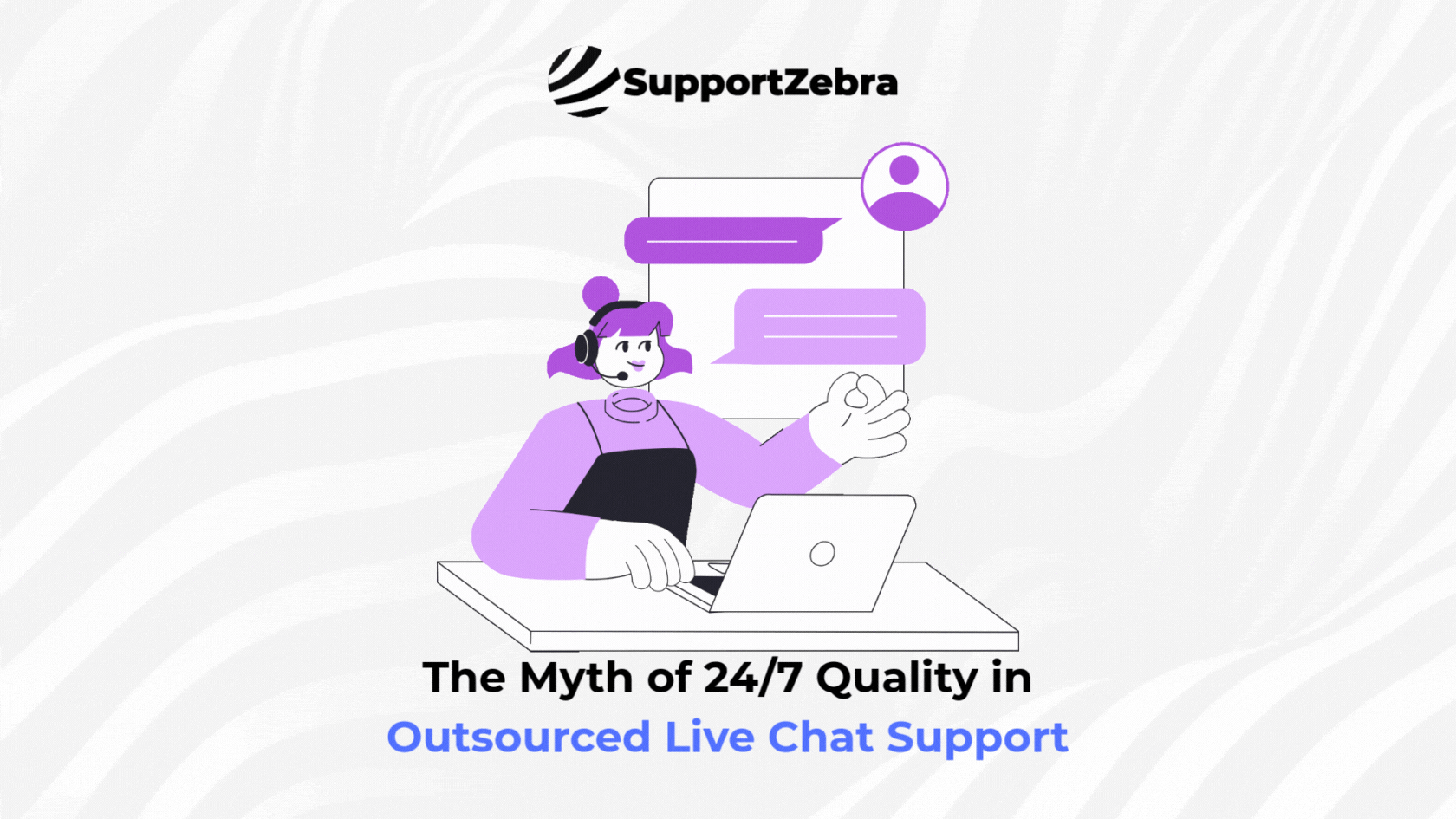Key Takeaways:
-
24/7 availability alone doesn’t guarantee quality—well-trained agents and strong processes are essential for great customer experiences.
-
Common myths include assuming all agents are equally trained, outsourcing always means better service, or that technology can replace human empathy.
-
Customers value multiple support options, not just live chat, making flexibility vital for satisfaction and loyalty.
-
SupportZebra ensures superior 24/7 live chat support with expert training, advanced tools, and a customer-first approach.
Is 24/7 live chat support really as good as it sounds? Many companies use outsourced live chat to help customers at any time of day. While being available all the time sounds great, it does not always mean customers get good service.
This blog explains why 24/7 live chat does not always lead to great customer support and how this can affect both businesses and customers.
Understanding Outsourced Live Chat Support
Outsourced live chat support lets customers send messages to a company and get real-time help from support agents. This service is often placed on a company’s website or app. Customers use it to ask questions, share concerns, or get help with problems.
The main goal is to improve the customer experience by giving fast and helpful answers. This helps build stronger relationships and increases customer satisfaction.
Here are five benefits of outsourced live chat support.
- Cost Savings
Outsourced live chat costs less than traditional support. Agents can help several customers at the same time.
- 24/7 Support
Outsourcing makes it possible to offer help all day and night, which is useful for global businesses.
- Better Customer Experience
Live chat allows fast replies, which helps solve problems quicker and keeps customers happy.
- Proactive Support
Some services start chats for customers to offer help before they ask.
- Flexibility
Outsourcing lets businesses adjust support levels as demand changes without hiring new staff.
The Allure of 24/7 Availability
More businesses now offer 24/7 support because customers expect fast help at any time. People want answers right away, even late at night or on weekends. Being available all the time helps companies stay competitive.
About 51 percent of people believe businesses should always be reachable. If companies fail to meet this need, customers may feel frustrated and choose a competitor instead.
As online service becomes more common, constant support is no longer a bonus. It is now seen as a basic part of good customer service.
Myth 1: 24/7 Support Equals Quality
Being available all day does not always mean better service. Quality depends on trained agents, clear processes, and strong management. Without these, customers may get mixed answers and poor experiences. Great support is about quality, not just being online.
Myth 2: All Agents Are Equally Trained
Not every agent has the same level of training. Poor training can lead to mistakes and unhappy customers. Ongoing training helps agents give consistent and reliable support that builds trust.
Myth 3: Outsourcing Guarantees Better Service
Outsourcing can help save money and grow support teams, but it does not guarantee better service. Quality depends on the provider’s skills and how well they understand your brand. Businesses should choose partners carefully and review performance often.
Myth 4: Technology Solves All Problems
Technology helps but it cannot solve every problem. Chatbots work well for simple questions, but complex issues need human care. A mix of technology and trained agents creates better support.
Myth 5: Customers Prefer Chat Over Other Channels
Live chat is helpful, but not everyone prefers it. Some customers like email for detailed answers or phone calls for personal help. Offering more than one support option shows respect for customer choices.
How SupportZebra Ensures Superior 24/7 Live Chat Support
Great customer service focuses on quality, even when support is available 24/7. Businesses can improve live chat by choosing strong partners, training agents well, using smart tools, and reviewing performance often. This leads to faster help, better conversations, and loyal customers.
SupportZebra provides reliable 24/7 live chat support with skilled agents and modern technology. Our agents receive strong training and use AI and CRM tools to give personal and helpful responses. We also use quality checks and customer feedback to keep service standards high.
Partner with SupportZebra to deliver excellent customer support at any hour. Contact SupportZebra today to learn more about our outsourced live chat services.

